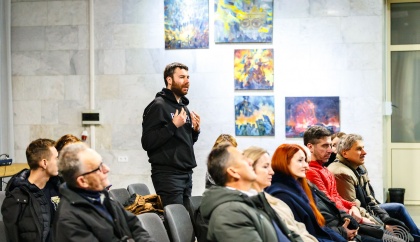
The Docu/Club Network of documentary film clubs in cooperation with the Maidan Museum organized a screening and discussion of the documentary “Crimea SOS” by Serhiy Lysenko, dedicated to the 10th anniversary of the Revolution of Dignity.
Reprinted from Media for Change.
CrimeaSOS is a civic initiative aimed on covering the events taking place in Crimea due to its illegal annexation by Russia. On February 27, 2014, on the first day of the Russian occupation of the peninsula, activists Tamila Tasheva, Sevgil Musayeva, and Alim Aliyev created the Crimea SOS Facebook page to provide timely and verified information about the situation in Crimea. Later, the organization began to provide assistance to internally displaced people from Crimea and eastern Ukraine.
The film “Crimea SOS” is a part of the “Encyclopedia of Maidan” almanac, created at the initiative of the NGO Docudays in 2015. The almanac includes 9 films that tell about the initiatives that emerged during the Revolution of Dignity and their work after the beginning of the Russian war in Ukraine.
Filmmaker Serhiy Lysenko captured the first months of the civic activists' work. In total, CrimeaSOS has provided support to hundreds of thousands of citizens from Crimea and eastern Ukraine.
After the screening, the audience discussed the situation in the temporarily occupied Crimea, the invaders' repressive policy towards Crimeans, and the maintenance of the peninsula's ties with mainland Ukraine with the film's director Serhiy Lysenko, the lawyer of CrimeaSOS Anna Rassamakhina, and the deputy director general of the Ukrainian Institute Alim Aliyev. The discussion was moderated by Maria Tsypiashchuk, coordinator and lawyer of the public reception center of the Ukrainian Helsinki Human Rights Union in Rivne and moderator of the Docudays UA film club “Human Rights Through the Lens.”
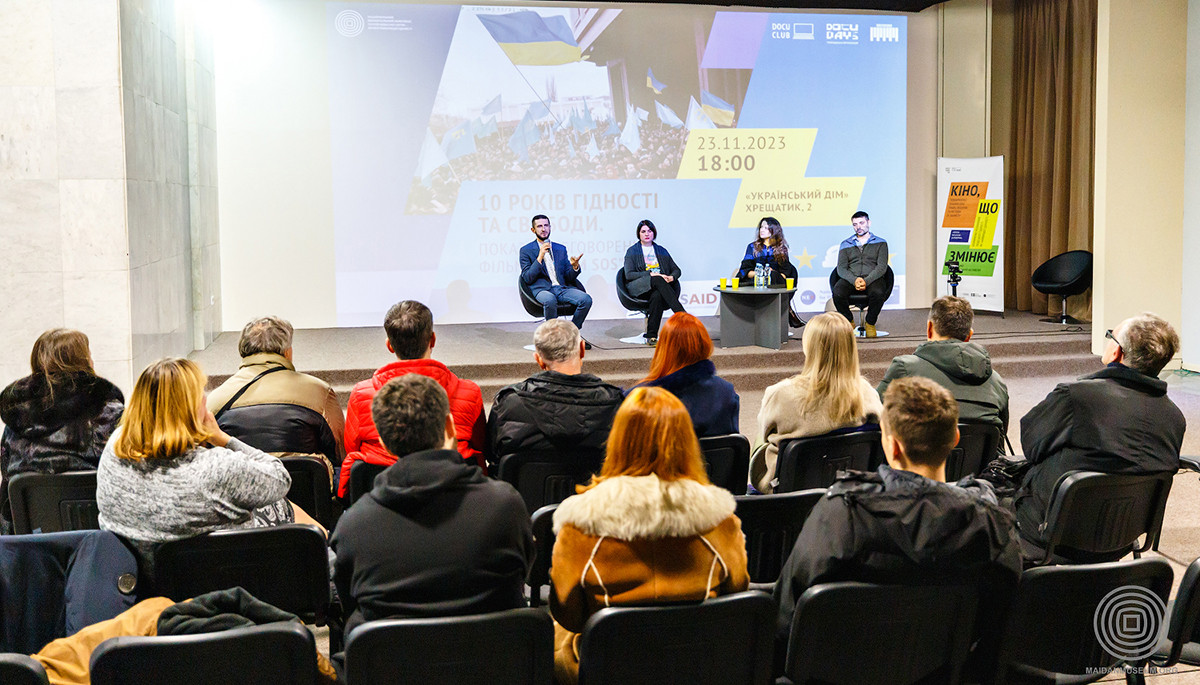
Photo: Alim Aliyev, Anna Rassamakhina, Maria Tsypiashchuk, Serhiy Lysenko
During the Revolution of Dignity, filmmaker Serhiy Lysenko and his colleagues filmed the events of the Maidan, including the arrival of activists in Mezhyhirya, the then residence of the fugitive president Viktor Yanukovych. After filming in Mezhyhirya, Serhiy shared with the artistic director of the Docudays UA Film Festival, Roman Bondarchuk, the idea of making films about the initiatives that were born on the Maidan. Together, they started working on the films.
“We thought that it would be interesting to follow the further development of the civic initiatives: what they would do, what would happen to them. Such energy just could not simply dissolve. Then, we identified certain topics and started making films about each initiative,” says Lysenko.
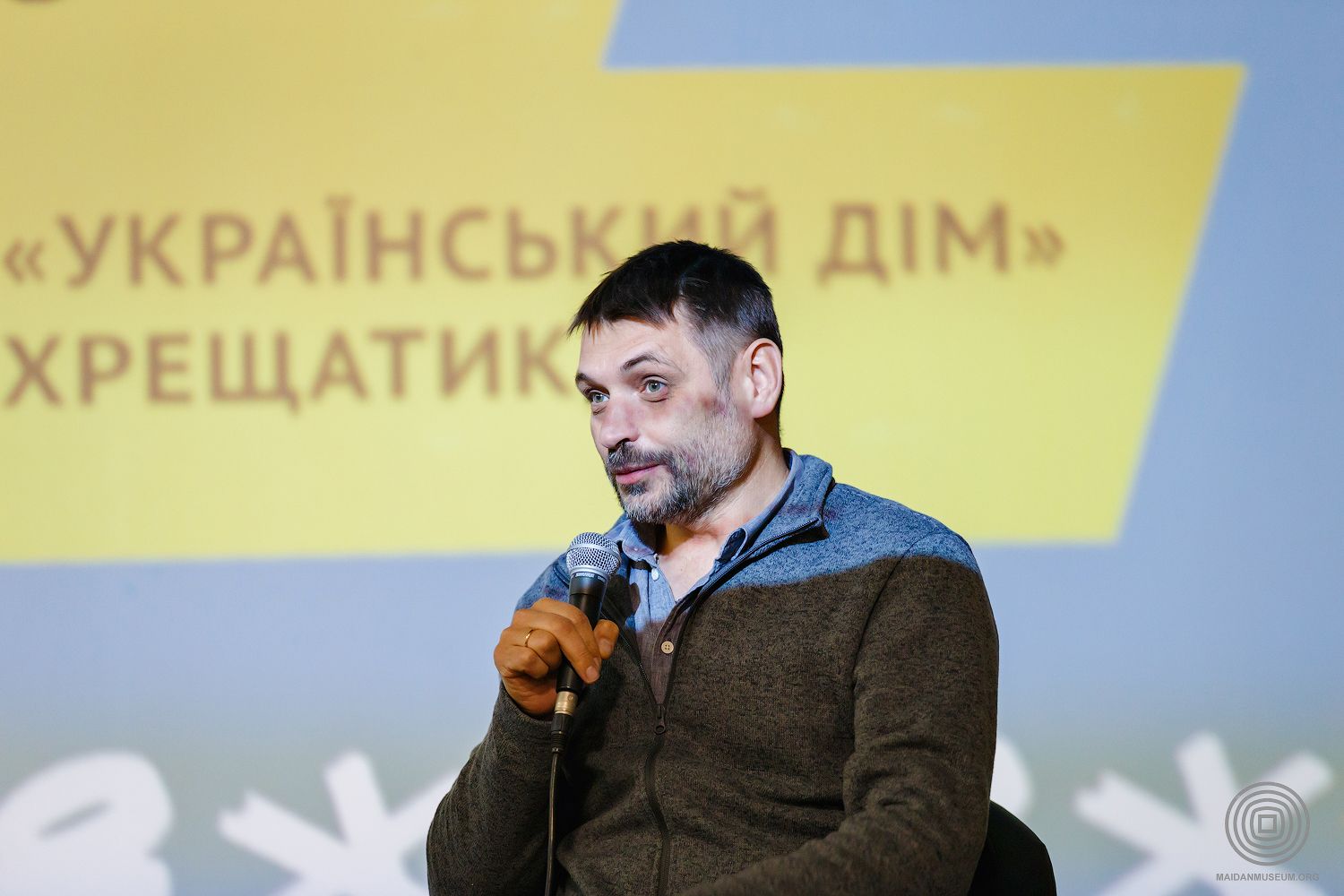
Photo: Serhiy Lysenko, director of the film “Crimea SOS”
According to Lysenko, the film “Crimea SOS” is one of his favorites, as it enabled him to meet many people who are implementing important ideas. He edited it in between volunteering and filming the war, which had already begun.
Alim Aliyev, Deputy Director General of the Ukrainian Institute, said that “Crimea SOS” is a continuation of Maidan.
“In 2014, we did not quite understand what was happening in Crimea, but we called our friends and decided to create a Facebook page to publish news. At that time, there was a huge demand for help. People were constantly calling and offering it. Our initiative was a continuation of Maidan, and today we are a public organization that works professionally with selected issues: internally displaced persons, legal and psychological assistance, and international advocacy,” says Alim Aliyev.
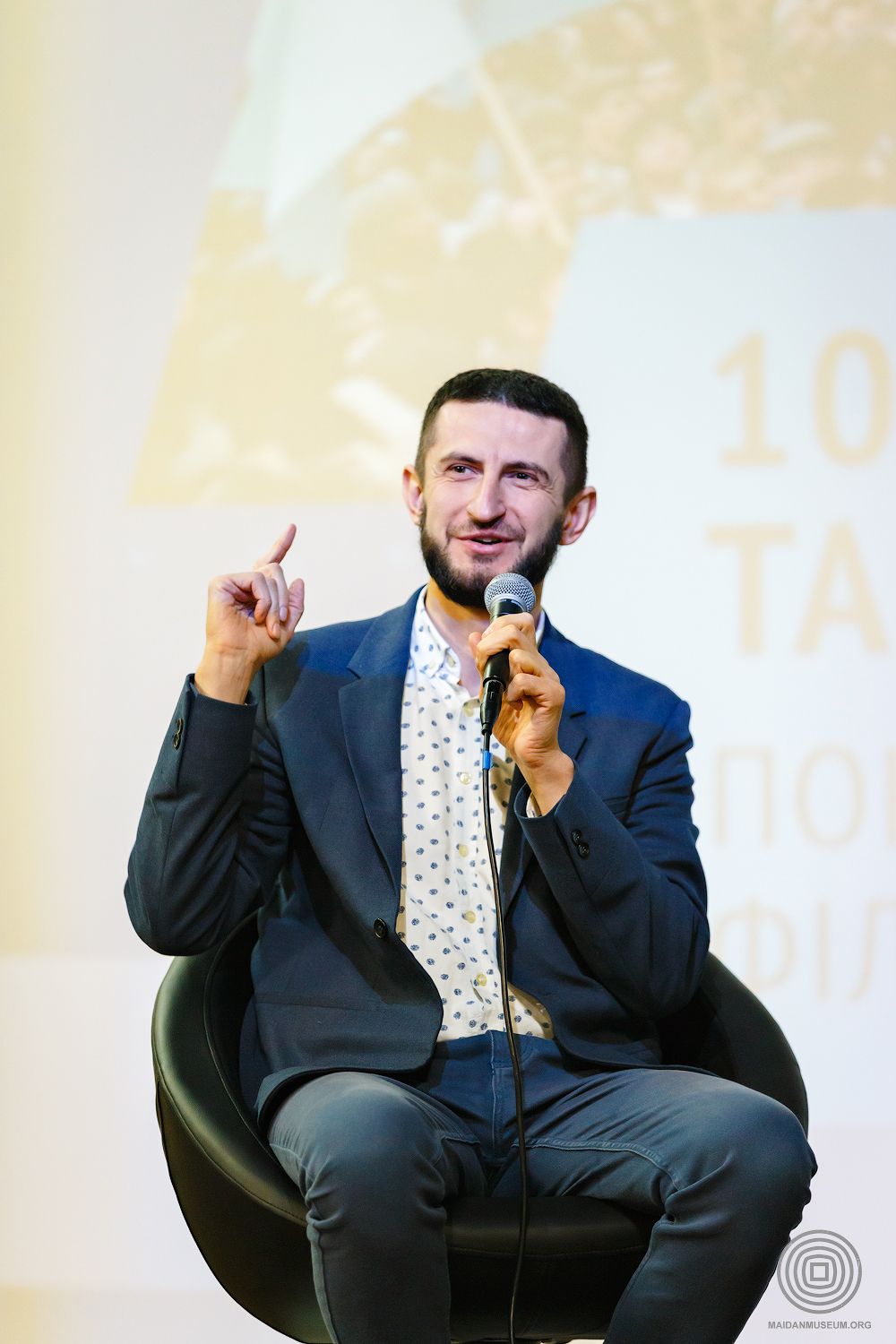
Photo: Alim Aliyev, Deputy Director General of the Ukrainian Institute
Over the years, the topic of Crimea has been raised not only among civil society organizations, but also in government institutions. In particular, the Representative Office of the President of Ukraine in the Autonomous Republic of Crimea, the Crimean House as a state cultural center, the Ministry for Reintegration of the Temporarily Occupied Territories of Ukraine, and the Ukrainian Institute – a state institution that subordinates to the Ministry of Foreign Affairs and promotes the topic of Crimea abroad, – were established.
“It is very important for us to explain that this war broke out in 2014 rather than 2022. It is also worth showing the consequences of the war and talking about its root causes. We work with the topic of Crimea through soft power, that is, through art projects, academic programs, or online courses on the history and culture of the Crimean Tartars,” says Alim Aliyev.
Speaking about the annexation of Crimea and the 10 years of Crimeans’ life under the scrutiny of Russian security forces, the participants mentioned human rights violations that are constantly taking place on the peninsula. The Crimean Tartars are particularly affected by persecution, pressure and arrests.
“The Crimean issue is on everyone's lips because we often hear about illegal detentions, searches, and imprisonments of Crimean Tartars. These crimes occur on a shocking scale. For example, political prisoners are being deported from Crimea and held in other regions of Russia. Nowadays, people who are arrested in the newly occupied territories – part of Zaporizhzhia region, Mariupol, etc. – are being taken to Crimea,” says Anna Rassamakhina, the lawyer of CrimeaSOS.
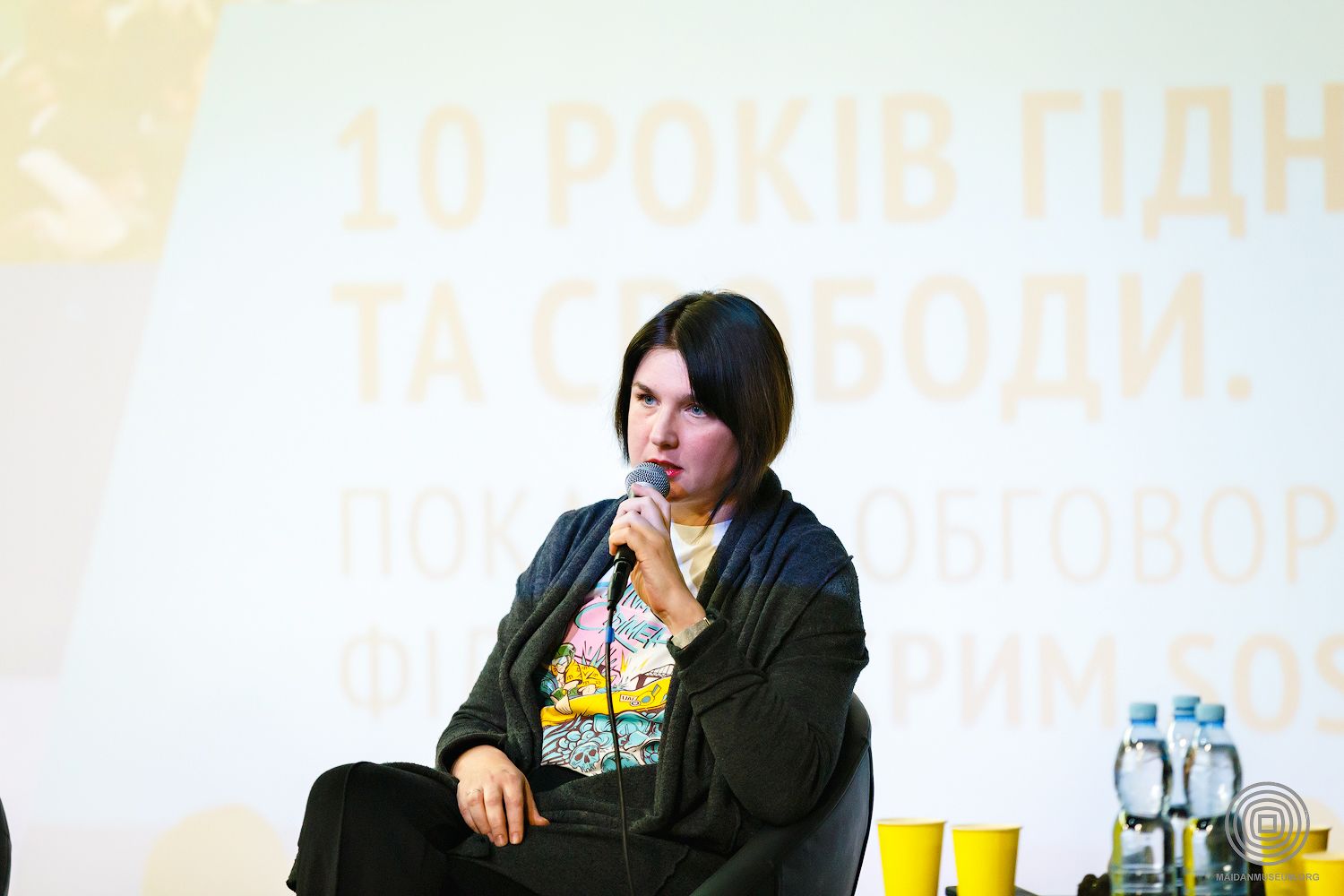
Photo: Anna Rassamakhina
According to her, after the start of the full-scale invasion, a new pre-trial detention center was built in Simferopol, and it is quite clear that the occupiers are going to increase the number of Ukrainian prisoners from the temporarily occupied territories.
There is also religious persecution on the peninsula.
“We know about all this very well. The persecution of Tartars, the persecution of various religious movements that are not extremist in nature, but whose followers still suffer violations of their rights,” the lawyer adds.
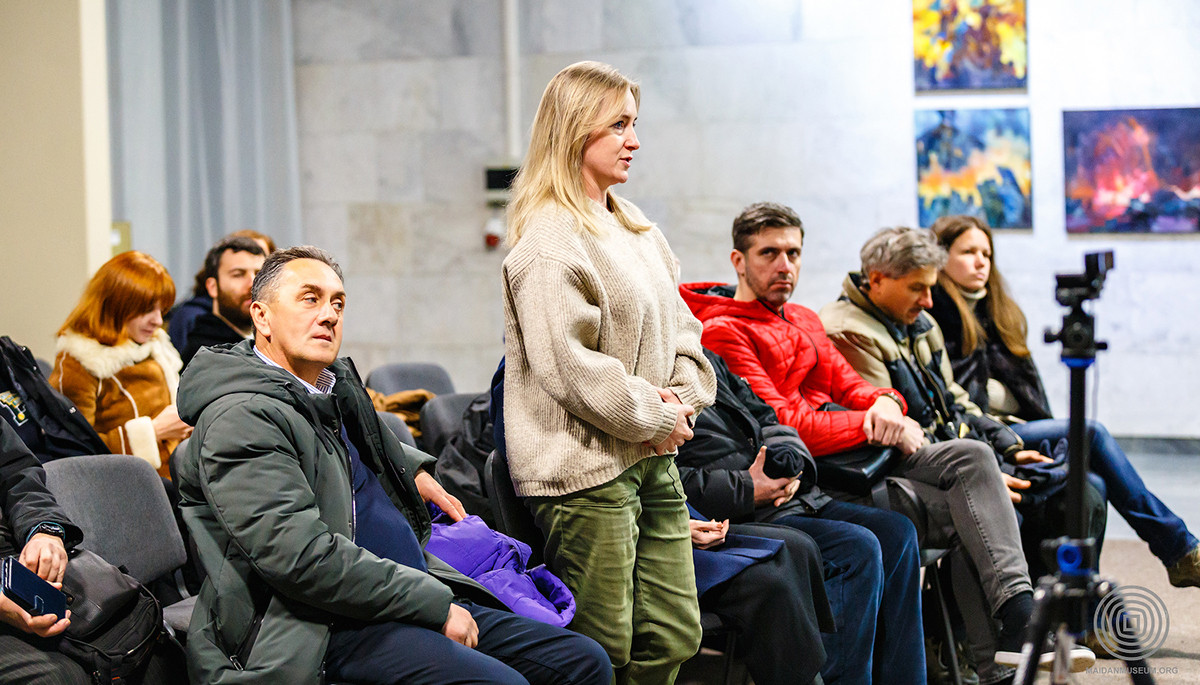
Photo: Participants of the discussion after the presentation of the film “Crimea SOS”
In addition, after the start of the full-scale invasion, Russian special services intensified their work in Crimea.
“It's hard to imagine what kind of harassment one can suffer for wearing a yellow and blue ribbon. Applicants from Crimea to the Ukrainian universities tell us that Crimean providers are now transmitting data about their subscribers who visit Ukrainian state resources. Ukrainian websites are blocked in Crimea and can only be accessed through a VPN, but even so, Russian special services can still find out about a person,” the lawyer says.
According to her, some fragments of modern Ukrainian history and their teaching in Crimea are qualified by Russian special services as extremism. That is, studying the history of the Maidan events may be used as grounds for bringing students to criminal liability.
“The atmosphere in which these pro-Ukrainian people live, even if they just do not want this war... Even these people are in constant danger. This is a sad story, but it needs to be told, and I would like as many people as possible in the government-controlled territory to know about it,” says Anna Rassamakhina.
Over the years, many Crimeans have left the occupied peninsula and moved to cities controlled by Ukraine. According to the lawyer, the state is unable to provide free housing for IDPs. No state in the world is able to compensate for all the losses, let alone a country at war.
“I don't really expect this from the state. But I would like to see the effective use of available state resources. This is not about money, but rather about creating quality legislation and quality procedures that implement this legislation,” says the lawyer.
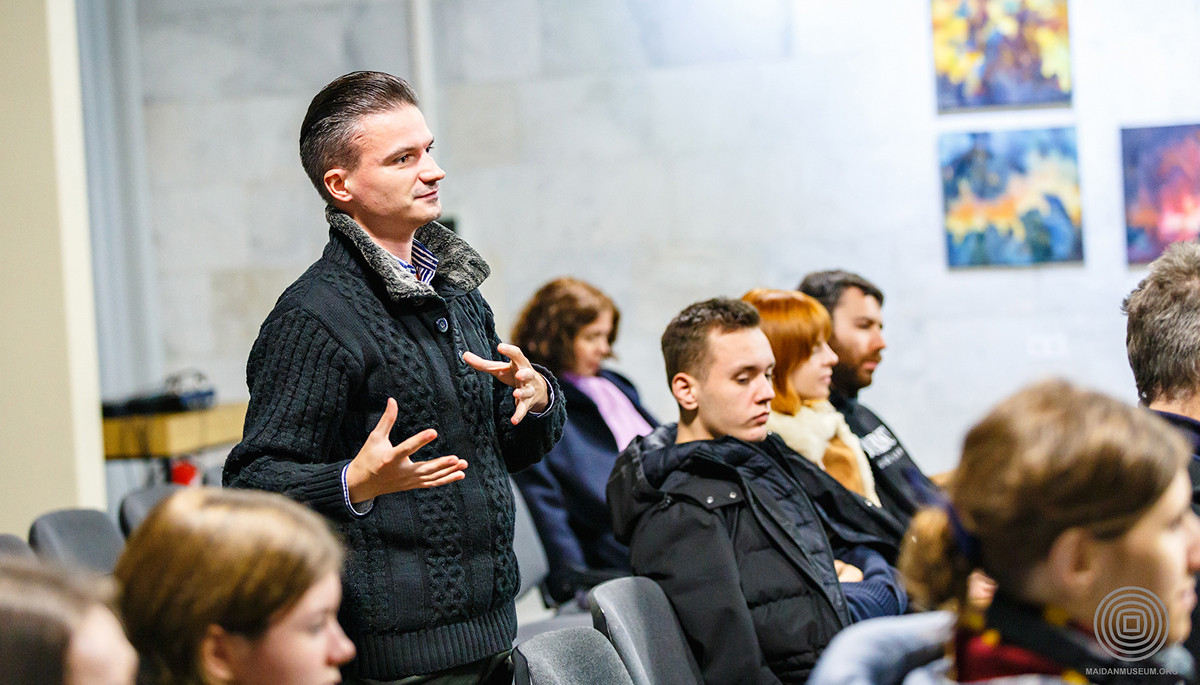
Photo: Discussion after the presentation of the film “Crimea SOS”
In addition to the work of government agencies aimed on liberating Crimea and restoring Ukrainian legislation on the peninsula, ordinary people should also be involved in bringing Crimeans back to Ukraine, said Anna Rassamakhina. It is about the mental rather than physical return of these people, because after the de-occupation of Crimea we will have to live in one country.
“None of us wants our children and the children of those who now live in Crimea or Donetsk to kill each other in 30 years on the grounds of civil conflict. Therefore, we need to create mechanisms for the socialization of these people after de-occupation. We should help them find their new identity,” says Anna Rassamakhina.
Alim Aliyev says that this war will end only with the de-occupation of all territories of Ukraine, including Crimea. Ceding territories or agreeing to freeze the conflict means shifting the burden of war onto the shoulders of our children.
“Being an authoritarian system, an empire, Russia will want to continue conquering other lands. For Crimeans, this war of 2014 is the latest colonization of the peninsula. We are fighting for our identity and the right to choose our future. When we discuss who can do what to return Crimea, it is important to realize there are no outside observers among us – we are all either in the army or have to do something for the army. It is important to support culture, in particular the Crimean Tartar culture and disappearing language, both institutionally and on a personal level. Every Ukrainian can learn 10, 20, 30 phrases in Crimean Tartar,” says Alim Aliyev.
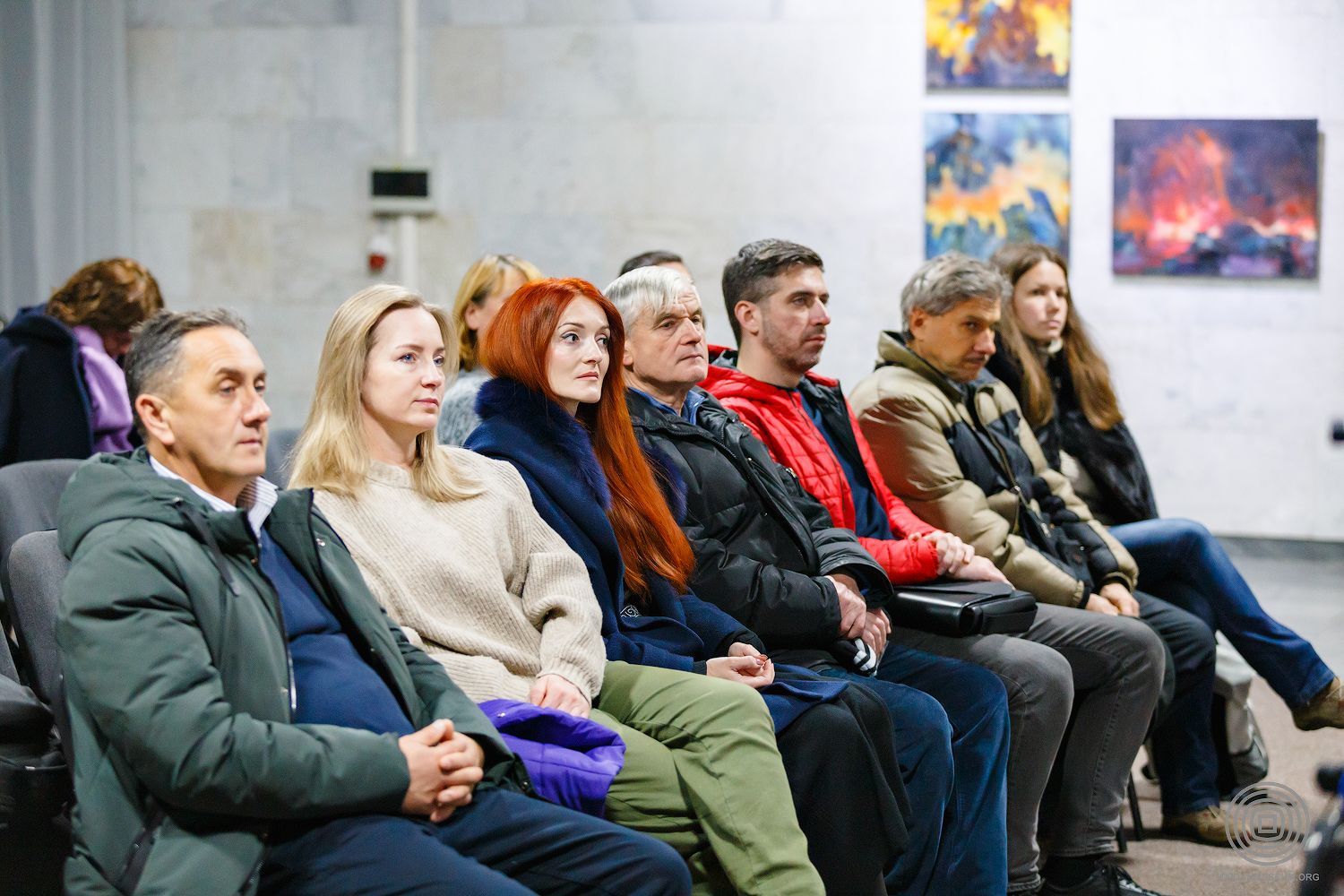
Photo: Participants of the discussion after the presentation of the film “Crimea SOS”
At the end of the discussion, the speakers shared their vision of what Crimea might look like in 25-30 years.
“The return of Crimea means the return of two flags: Ukrainian and Crimean Tartar. For me, Crimea is a place that not only inspires, but also produces meanings for Ukraine and the rest of the world. Crimea is a creative peninsula where people can develop, do interesting and important things that will be perceived not only in Ukraine but also abroad. Crimea is a place that will be open to the world again,” said Alim Aliyev.
“I hope that Crimea will not become a lever for violence and further injustice for many years to come,” said Anna Rassamakhina, lawyer of CrimeaSOS.
Filmmaker Serhiy Lysenko believes that Ukraine needs to rethink its support for Crimean Tartars.
“Ukraine has made a big mistake in not relying on the Crimean Tatars in Crimea to a larger extent. I hope we will have a chance to correct these mistakes, and I am sincerely convinced that Crimean Tartars and Ukrainians will jointly make Crimea beautiful,” he added.
Text by Lyudmyla Tyahnyryadno
Photos by Bohdan Poshyvaylo
The development of the DOCU/CLUB Network is funded by the United States Agency for International Development (USAID), the Embassy of Sweden in Ukraine, the National Endowment for Democracy (NED) and Fondation de France.
The opinions, conclusions, or recommendations are those of the authors and compilers of this publication and do not necessarily reflect the views of the governments or charitable organizations of these countries. The authors and compilers are solely responsible for the content of this publication.
All news



